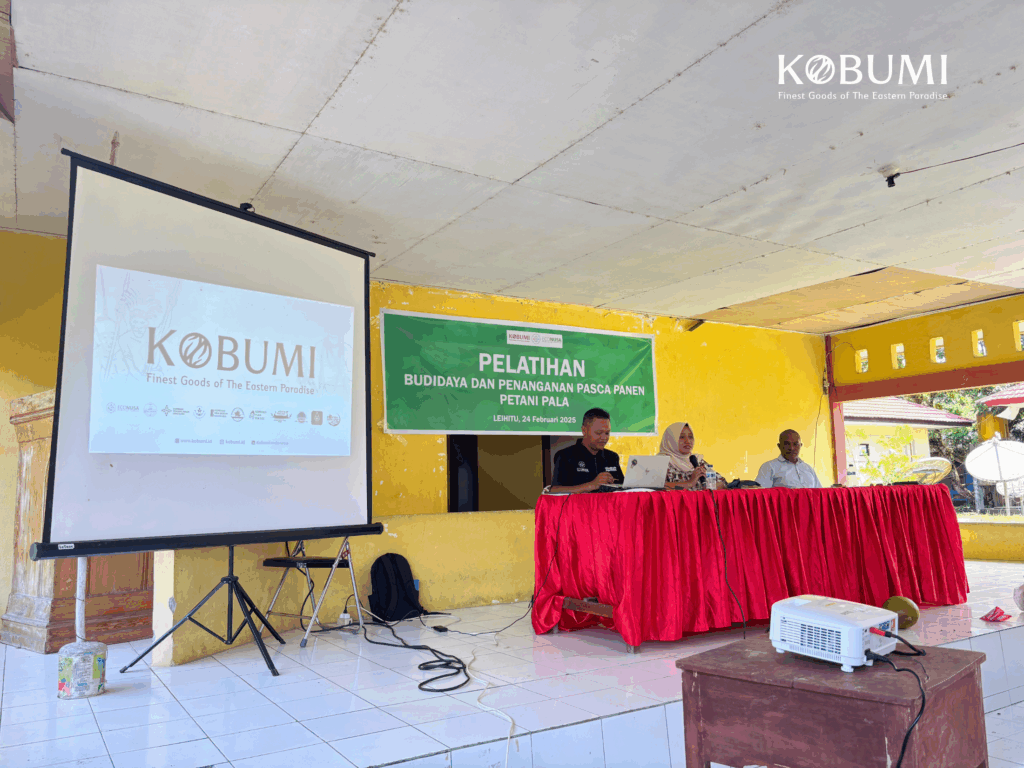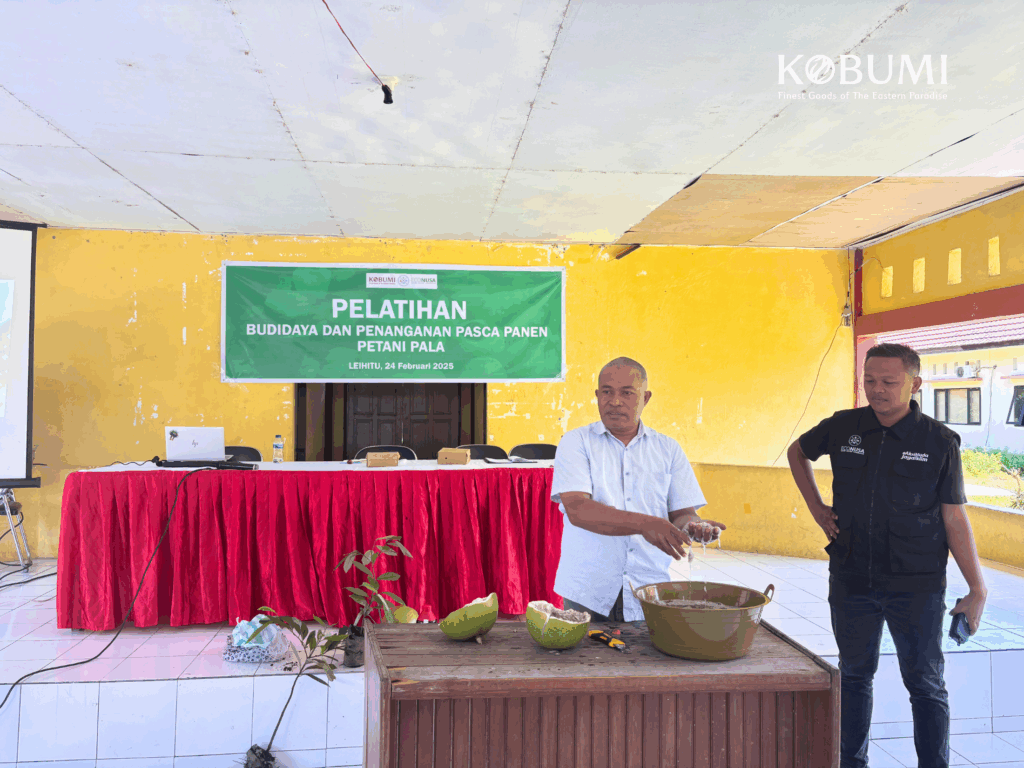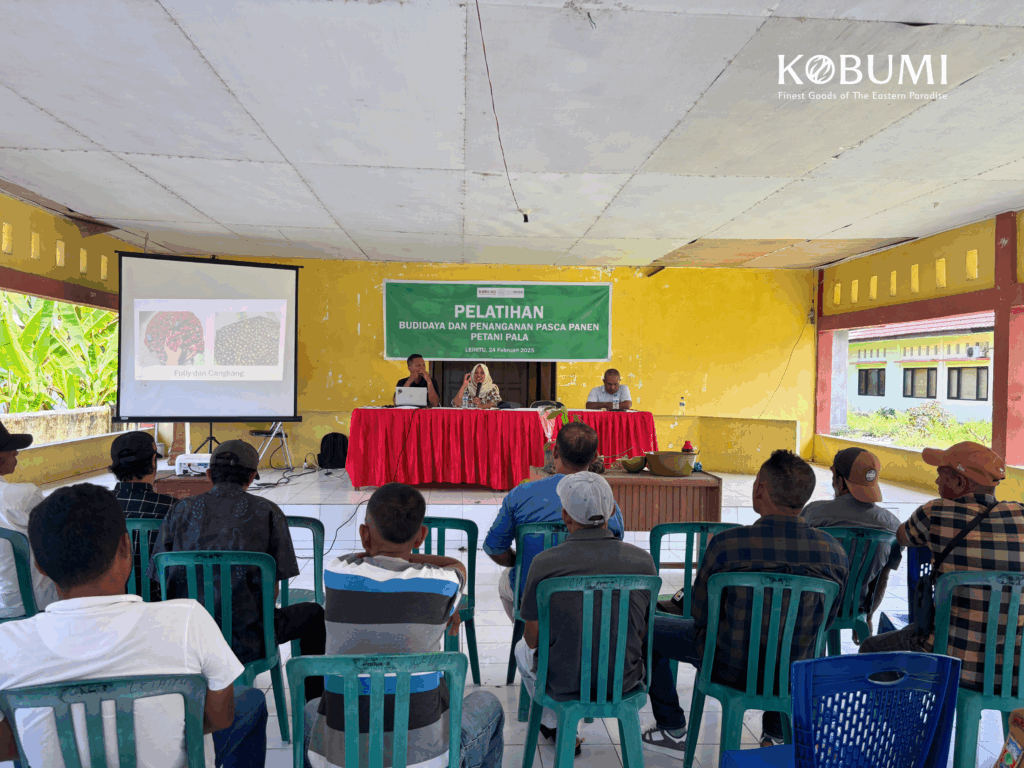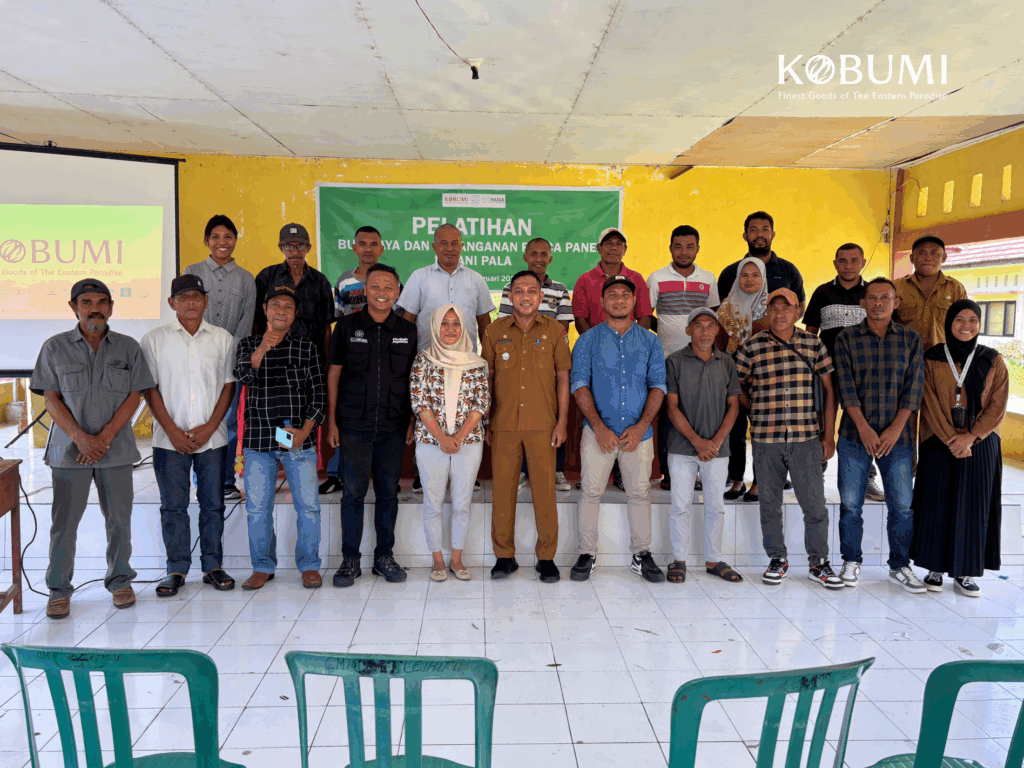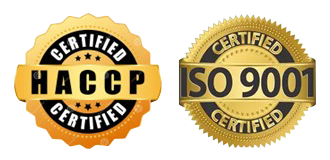One bright morning, the Leihitu Subdistrict Hall was livelier than usual. Under the clear sky, nutmeg farmers gathered with a sense of curiosity and enthusiasm. They came from five farmer groups across different villages in Leihitu, Central Maluku: Seith, Wakal, Morella, Larike, and Kaitetu.
This activity was part of a capacity-building program initiated by KOBUMI Indonesia in collaboration with the EcoNusa Foundation. The program aims to strengthen the local economy while reviving the legacy of Maluku’s once-famous nutmeg trade.
Representing KOBUMI Indonesia, Dewi, along with the Maluku Regional Program Team from EcoNusa, was present on-site to facilitate the training. The approach was practical and tailored to real field conditions based on the farmers’ everyday challenges.
Training Focus and Materials
1. Selection and Planting of Quality Nutmeg Seeds
Emphasizing the importance of starting with high-quality seeds to ensure better harvest results.
2. Cultivation and Maintenance Techniques
Covering essential plant care practices up to maturity, including pest and disease control, fertilizer use, and composting agricultural waste.
3. Harvest and Post-Harvest Handling
This critical phase was a highlight of the training, as mistakes during harvesting can significantly affect quality and selling price. Farmers learned about optimal harvest timing, proper drying techniques to preserve aroma and quality, and how to reduce contamination and mechanical damage during drying.
The History of Nutmeg in Leihitu
Leihitu is more than just a place that grows nutmeg—it is part of world history. During the spice trade boom of the 16th to 18th centuries, this region attracted the interest of European powers, particularly the Dutch East India Company (VOC). Villages like Kaitetu and Hila were once key routes in the global nutmeg trade, where the spice was valued more than gold.
Today, that spirit lives on, though the challenges have changed—from colonial domination to market competition, climate change, and the need to improve local product quality. Trainings like this are small but meaningful steps toward unlocking the full potential of a spice that once defined an era.
Through this program, farmers are not only equipped with technical skills but are also empowered to reach international markets with better products. By improving standards—from seed selection to drying and export-quality packaging—Leihitu nutmeg is becoming more competitive globally.
This is more than just about boosting farmers’ income. It’s about bringing Maluku’s voice back to the global spice stage—with pride, with quality, and with a legacy rooted in culture.
